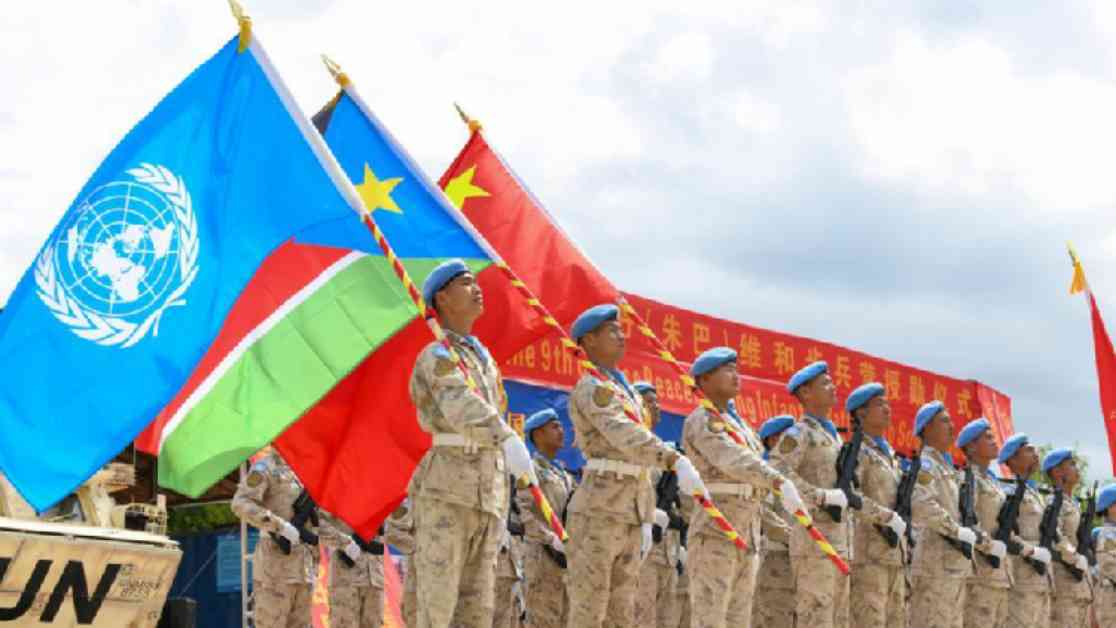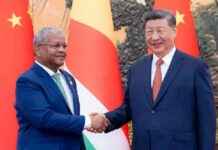China’s Strategic Role in South Sudan’s Peace and Stability
The upcoming 2024 Summit of the Forum on China-Africa Cooperation (FOCAC) is set to take place from September 4 to 6 in Beijing, with “Peace and Security” as one of its four high-level meetings. This emphasis highlights the critical importance of peace and security in China-Africa relations and underscores China’s commitment to global stability. South Sudan, in particular, plays a significant role in China’s strategic efforts to promote peace and security on the African continent.
South Sudan, the world’s youngest nation, has been plagued by conflict since gaining independence in 2011. With over 100 tribes and a history of inter-tribal violence, the country has struggled to maintain stability. In the midst of this turmoil, China has emerged as a key player in the region, not only as a leading contributor to UN peacekeeping forces but also as a staunch advocate for a comprehensive peace strategy through its Global Security Initiative.
China’s commitment to peace in South Sudan is evident through its deployment of over 1,000 peacekeepers, including infantry, engineering, and medical personnel. In 2015, China took a significant step by deploying its first full infantry battalion to the United Nations Mission in South Sudan (UNMISS). This 700-strong battalion, stationed in Juba, has been actively engaged in critical peacekeeping operations, including armed patrols, conflict separation, and security searches. Equipped with light weapons and mobile armored personnel carriers, these troops have played a vital role in maintaining peace in one of the most volatile regions in the world.
The Chinese engineering units based in Wau have been instrumental in maintaining essential infrastructure, such as roads, bridges, and airports, which are crucial for the success of UN operations in South Sudan. Additionally, Chinese medical units have provided invaluable healthcare services to UN personnel and local communities, addressing critical needs in regions where medical facilities are scarce. These efforts demonstrate China’s multifaceted approach to peacekeeping and its commitment to supporting the people of South Sudan.
Under the Global Security Initiative introduced by President Xi Jinping, China’s involvement in South Sudan is part of a broader strategy to promote peace and security as foundations for sustainable development. At the 2021 FOCAC Ministerial Conference, President Xi emphasized the importance of a “peace and security program” as a core element of China-Africa cooperation. China’s contributions to peacekeeping in South Sudan are guided by the Five Principles of Peaceful Coexistence, which emphasize mutual respect for sovereignty, non-interference in internal affairs, and peaceful coexistence. These principles are particularly relevant in South Sudan, where sovereignty and stability remain fragile.
In addition to its peacekeeping efforts, China has provided substantial in-kind assistance to South Sudan’s unified forces and supported mediation efforts led by regional organizations such as the Intergovernmental Authority on Development and the African Union. China has also consistently advocated for the lifting of international sanctions and the arms embargo on South Sudan, reflecting its commitment to respecting sovereignty while supporting nations in their development paths.
As the FOCAC summit approaches, China’s role in South Sudan will be closely scrutinized, not only for its immediate impact on the country’s stability but also for what it reveals about Beijing’s evolving role on the global stage. The challenge for China extends beyond stabilizing South Sudan; it also encompasses how Beijing’s actions in the region will shape its future engagement with Africa and the wider world.
China’s Peacekeeping Efforts in South Sudan
China’s peacekeeping efforts in South Sudan have been significant, with over 1,000 peacekeepers deployed to the region. The Chinese infantry battalion stationed in Juba has played a crucial role in maintaining order and safeguarding the civilian population. By conducting daily patrols and guarding observation posts, the Chinese peacekeepers have helped prevent armed conflict and protect vulnerable populations. Their presence in South Sudan has been instrumental in supporting the efforts of UNMISS and promoting peace and stability in the region.
China’s Contributions to Infrastructure Development
In addition to their peacekeeping efforts, Chinese engineering units in Wau have been essential in maintaining vital infrastructure in South Sudan. By repairing roads, bridges, and airports, these units have facilitated the movement of UN personnel and humanitarian aid, contributing to the overall success of peacekeeping operations in the country. The infrastructure development projects led by China have not only improved the logistical capabilities of UNMISS but have also had a positive impact on the local communities in South Sudan.
China’s Role in Diplomatic and Mediation Efforts
China has also played a significant role in diplomatic and mediation efforts in South Sudan. By supporting regional organizations such as the Intergovernmental Authority on Development and the African Union, China has helped facilitate dialogue and negotiation between conflicting parties in South Sudan. China’s diplomatic efforts have focused on promoting peaceful resolutions to the ongoing conflicts in the country and advocating for the implementation of sustainable peace agreements. Through its diplomatic engagement, China has demonstrated its commitment to promoting peace and stability in South Sudan and the wider African continent.
In conclusion, China’s strategic role in South Sudan’s peace and stability is a testament to its commitment to global peace and security. Through its extensive peacekeeping efforts, infrastructure development projects, and diplomatic engagement, China has demonstrated its willingness to support the people of South Sudan in their quest for peace and stability. As the FOCAC summit approaches, all eyes will be on China to see how its actions in South Sudan will shape its future engagement with Africa and the wider world.









![Indie music fans gather at l’Antipode for [Face B] Kool Things soirée on Saturday night news-15112024-105933](https://shanghainewstv.com/wp-content/uploads/2024/11/news-15112024-105933-218x150.jpg)







